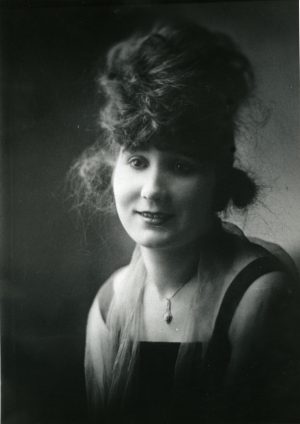
Health care, education, transportation infrastructure, and youthful employment are all issues found in today’s headlines. These are mutual concerns, which affect us all and are part of the human experience. They also figure in the sadly brief life story of Ethel Silvera, who lived and died on the Mendocino Coast early in the 20th century. As with much of history, Ethel’s story brings to mind how over the decades circumstances have changed, and yet remain the same.
Ethel Margaret Silvera was born in Fort Bragg on June 24, 1900, to John Jose and Margaret Sweetzer Silvera. Her family moved to Mendocino when she was a baby. Her parents bought their home in 1903 on the southeast corner of Little Lake Road and Blair Street, in east Mendocino. Ethel was the second of five children, having an older sister, a younger sister and two younger brothers. She attended school locally and was a member of the 1919 graduating class of Mendocino High School. While there, Ethel played on the girls’ basketball team and was on the staff of the annual, the “Boom.” The graduating class of that year had seen some of their classmates enlist and travel overseas to “Make the World Safe for Democracy” during the First World War.
On the 18 of October, about five months after celebrating her graduation, Ethel was involved in a collision of automobiles. The Beacon reported the event, saying that Ethel a “local telephone operator” (one of the few better jobs available to women) was driving a Dodge at the time. Her vehicle ran into the “machine” operated by Archie Cameron of Albion, near the Occidental Hotel (then located on the south side of Main Street, just east of its intersection with Lansing Street). The paper mentioned that there were other occupants in both the Dodge and Mr. Cameron’s vehicle, and that no one was hurt. The cause of the accident was not discussed; but it was noted that the fenders of both cars were “badly bent” and that the steering gear in Mr. Cameron’s auto was “jammed.” One uncertainty is whether this was “Big Archie” Cameron, or his son.
Ethel went on to pursue her career, working for a time as stenographer for her uncle Mr. A. L. Sweetzer of Fort Bragg. Ethel was known “as a girl of particular charm and winsome ways and had an unusual faculty of making and retaining friends.” In the 1919 “Boom,” on the pages devoted to the seniors, each graduate was pictured along with a favorite or inspirational quotation. Ethel had chosen Oliver Goldsmith’s “Eternal sunshine settled on her head.” In the “Rogues Gallery” of seniors, intended to be humorous, a brief physical description of each graduate was provided along with their “crime.” Of Ethel, it was said: “Short and thin. Thin scraggly locks. Crime:–Always looking on the dark side of life, and overworking.”
The place of employment Ethel chose next was also in Fort Bragg, as a salesperson at the Ray Ender’s Sweet Shop. She was working there in early April of 1922 when she suddenly became ill, and was brought to the hospital in Fort Bragg. The diagnosis was “cerebrospinal meningitis.” When it became clear that there would be no recovery, she asked to be moved back home to Mendocino. Ethel died, much too young, on April 11, 1922, and was buried in Fort Bragg.